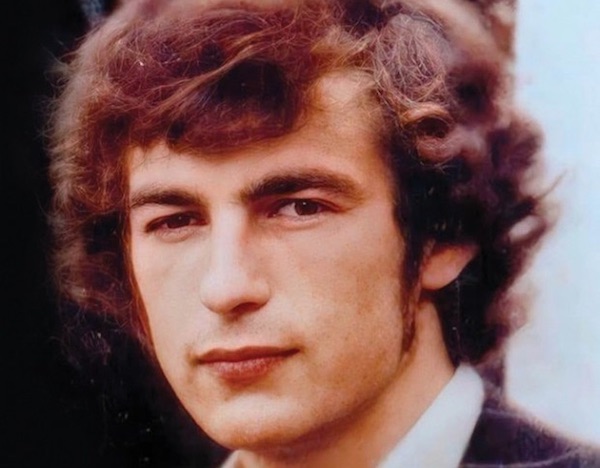
An account of the life of Thomas McElwee, the ninth hunger striker in the 1981 protest to die, 40 years ago this week. By Stailc81 (stailc.com)
Tom McElwee grew up in what would have been considered an ordinary South Derry home in the 1950s, just outside Bellaghy. When not at school he would be helping neighbours in the area with their crops and machinery. Some of them were Protestants and Loyalists, but were friendly to his family. Tom, who abhorred sectarianism, would help them as much as his neighbours who were Catholics and Nationalists.
Growing up, he developed a love of cars and was said to be keen on mechanics. With this interest, he eventually found work for a while at a Bellaghy garage. When he was old enough to drive, he indulged his passion for stock car racing. He enjoyed listening to country and western music. He also loved traditional Irish music, particularly Rebel songs; songs that told of Ireland’s troubled history and brave heroes. When he was young, the whole family would attend folk concerts in the village. He was also involved with his local amatuer boxing club.
When Tom left school, he had wanted to become a telephone engineer, but in those times it was exceedingly difficult for a catholic to get such a job. With the war in the North of Ireland raging and many local people imprisoned or brutalised by the British army, Tom joined Na Fianna Éireann at a young age, then his cousin Francis Hughes’ independent republican unit and finally, the Irish Republican Army.
While on active service in 1976, Tom was injured in an explosion in which a civilian, Yvonne Dunlop, tragically lost her life. Tom himself required surgery to save his sight and eventually lost an eye. Another republican lost a leg in the incident. Along with his brother Benedict, Tom was imprisoned and sent to the H-Blocks.
Tom was taken to the Waverley hospital in Ballymena, then transferred to the Royal Victoria Hospital in Belfast for emergency surgery to save his remaining eye. It was three weeks before he could see at all. Six weeks later he was transferred again, to the military wing of the Musgrave Park hospital.
While on the Blanket protest Tom was reunited with his cousin and comrade Francis, who would also later go on hunger strike for political status. A tall and good-natured young man, while in jail Tom was said to be a dedicated Irish language enthusiast and often refused to speak to other prisoners in English.
Tom was nicknamed “Punchy” by the prison screws for good reason. His boxing experience gave them great trouble. Standing 6ft 2″ with one eye, he was an intimidating presence. For the same reasons he was known to fellow prisoners as “Big Tom”. On one occasion, a guard dumped Tom’s dinner plate on the urine soaked floor. Tom said nothing, then punched him as hard as he could. On another occasion, he knocked out several teeth of a guard who had pushed him.
Tom McElwee, like many others, showed immense determination in the face of the British government’s criminalisation policy. As the 10th man to join the 1981 hunger strike Tom had painfully watched his comrades die before him and, particularly tragically for him, his cousin Francis.
Such was his courage and determination in regards to the road ahead he had stated that, “I am fully aware of the pain and suffering I will have to endure and I know that at the end I may and most likely will have to forfeit my life. In a few months my body may be no more, but like Bobby, Francis, Patsy and Raymond I will not be dead. So long as one Irishman resists the occupation of our country and fights for the establishment of a democratic and socialist republic.”
Thomas McElwee’s dying wish was to be buried beside Francis Hughes. After 62 days on hunger strike, Tom’s protest ended on August 8 1981. He had died at just 23 years of age.
At his funeral mass, the priest sought to denigrate the hunger strikers, which resulted in an exodus of mourners from the church. Tom’s sisters carried his coffin on the day of his funeral and an IRA firing party delivered full military honours as South Derry and mourners from across Ireland paid their final respects.
![[Irish Republican News]](https://republican-news.org/graphics/title_gifs/rn.gif)
![[Irish Republican News]](https://republican-news.org/graphics/title_gifs/harp.gif)

